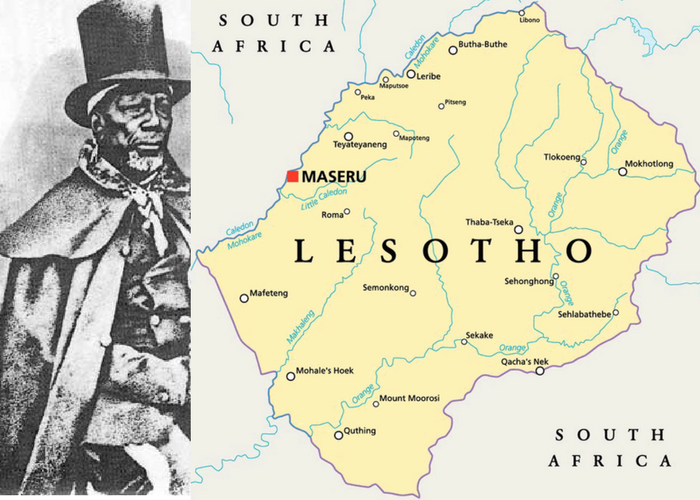 Lesotho is a landlocked country within a country (South Africa) but remains a sovereign nation. The nation of Lesotho is exceptional because it is one of the few countries on earth where most of the people own their own homes. Lesotho is also the largest exporter of apparel to the United States of America. One of the country’s goals is to become one of the first countries in the world with an electric grid that runs renewable energy 100% of the time.
Lesotho is a landlocked country within a country (South Africa) but remains a sovereign nation. The nation of Lesotho is exceptional because it is one of the few countries on earth where most of the people own their own homes. Lesotho is also the largest exporter of apparel to the United States of America. One of the country’s goals is to become one of the first countries in the world with an electric grid that runs renewable energy 100% of the time.
Lesotho is the mountainous region of South Africa and the mountains have always served as a barrier of protection against invaders. The land was occupied by the Khoisan who were hunters and gatherers throughout the whole stone age. However, in the 16th century, the Sotho people moved into the valley of the Caledon River because of Tshaka’s ‘Mfecane’ or ‘Difaqane’ wars. The ‘mfecane’ is translated to mean the war that results in the total crushing of the opposing armies. The Sotho were agriculturalists and with time their population overtook the population of the Khoisan.
King Moshoeshoe I, who is considered the founder of Lesotho, reigned from 1822 – 1870. He waged one of the most effective resistance efforts to colonialism (from the Dutch Boer settlers and British Empire) over many decades. Moshoehoe was able to keep Lesotho separate and intact from British South Africa and Apartheid South Africa both during and after its colonial phase. Part of his success is from the fact that he never suffered a major military defeat and retained most of his kingdom and all of his culture. Moshoeshoe Day is a national holiday in Lesotho celebrated every year on 11 March to commemorate the day of Moshoeshoe’s death.
While he was King, Moshoeshoe was a true African leader who united the decentralized chiefdoms of the neighboring people. Under his leadership, they used what is known as the ‘mafisa system’. The mafisa system involved rich men lending one or two cattle to the poor who would look after the cattle and use them to plough the land plus obtain milk to feed their families. The mafisa system created a sense of kinship among the Sotho people. Moshoeshoe was an authentic leader because he used the Pitso system of leadership. The Pitso system was a consultative congress that advised him on how to manage the affairs of the Sotho. This goes against the false narratives that dictators are a customary part of African leadership.





4 responses to “A Brief History of Lesotho and King Moshoeshoe”
There are some things that just make me proud such as r eading that most people own their own homes in Lesotho.This is remarkable. Kudos to Lesotho. Let’s not destroy this progress with squirmishes.
Am glad to know this short history of this country thanks to the author
We need to go back to Pitso consultation governing councils not dictators propped up by foreign governments.
Help with how King Moshoeshoe 1 with the difficult critics in 1854